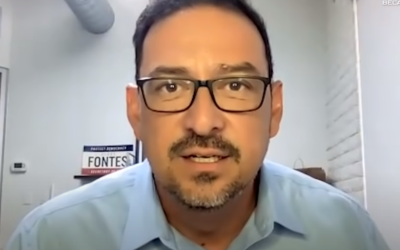By Ethan Faverino |
A new Arizona Public Opinion Pulse (AZPOP) survey from Noble Predictive Insights (NPI) reveals that Arizona voters favor greater parental control over education and support restrictions on classroom discussions about race, gender, and sexuality.
However, the data reveals a striking trend: political affiliation, rather than parenting status, is the primary driver of these education policy preferences.
NPI conducted the survey from August 11-18, 2025, polling 948 registered Arizona voters with a margin of error of ±3.18%.
The survey found strong support for increased parental involvement in education, with 48% of voters believing parents should have more control over educational content, 30% saying current levels are appropriate, and 13% favoring less parental influence.
Parents with children under 18 (51%) and those with adult children (50%) show slightly higher support for increased control compared to non-parents (46%).
Political affiliation, however, reveals evident divides: 67% of Republicans advocate for more parental control, compared to just 30% of Democrats and 45% of Independents.
NPI Founder and CEO, Mike Noble, commented on these results, saying, “This data exposes a counterintuitive reality where partisan identity outweighs personal family circumstances in shaping education policy views.”
On the issue of limiting classroom discussions about race, gender, and sexuality, 50% of Arizona voters support restrictions, while 38% oppose them. Parents with children under 18 show stronger support (58%) compared to those with adult children (50%) or non-parents (45%), indicating a greater concern among parents with school-age children about exposure to sensitive topics in the classroom.
Political affiliation again proves to be the dominant factor. A striking 71% of Republicans favor restrictions compared to only 34% of Democrats. Independents are nearly split, with 43% supporting restrictions and 45% opposing them, reflecting broader ideological tensions.
The survey challenges the assumption that parenting status primarily shapes education policy views. Instead, partisan identity drives preferences, with Republicans prioritizing parental rights and limits on sensitive topics, viewing schools as potential sources of ideological influence.
Democrats, conversely, emphasize professional educator judgment and oppose restrictions they see as censorship. Independents remain divided, grappling with balancing parental authority and educational freedom.
“Arizona’s education debates have become a perfect storm of cultural anxiety and political division,” said Noble. “While parents naturally want influence over their children’s education, we’re seeing partisan identity increasingly drive policy preferences more than actual family experience.”
Ethan Faverino is a reporter for AZ Free News. You can send him news tips using this link.








